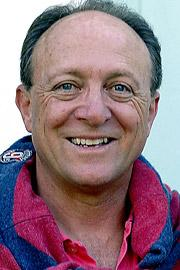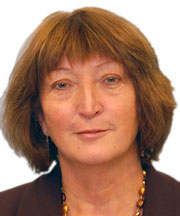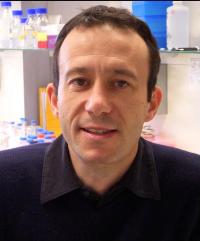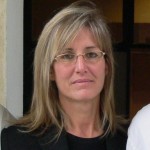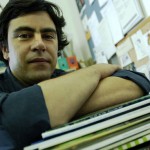Invited Speakers – 2014
John H. Barker | Frankfurt Initiative for Regenerative Medicine, JW Goethe University, Frankfurt Germany
“From Transplanting to Regrowing Hands and Faces”
Dr. Barker’s research always begins and ends with patients in mind. He works closely with scientists, clinicians, industry partners and entrepreneurs using translational research and commercialization to develop better treatments for patients. One such effort led to the clinical introduction of human hand and face transplants. These new treatments have improved the lives of patients suffering with hand amputations and facial disfigurement and in doing so revolutionized the fields of Reconstructive and Transplant Surgery.
In 2010 Dr. Barker moved from the US to the Goethe University in Frankfurt Germany, where he established the Frankfurt Initiative for Regenerative Medicine (FIRM). In Frankfurt his research continues to focus on patients suffering with hand amputations and facial disfigurement, however instead of transplantation he is investigating new methods to regrow limbs and facial tissue. In partnership with the Departments of Orthopedics and Trauma Surgery at the Goethe University in Frankfurt he is building a multidisciplinary international team of scientists, clinicians and industry partners to develop new and better treatments for patients.
In addition to research and teaching, Dr. Barker is active in transferring University research from the laboratory bench to the market place, having founded and led several biotech startup companies.
In addition to these activities Dr. Barker has directed and volunteered in several medical missions and programs that provide humanitarian assistance and educational opportunities in Latin America.
Of all his professional accomplishments Dr. Barker is most proud of having mentored more than 150 students, from more than 20 countries.
Sheila MacNeil | University of Sheffield
“Developing epithelial tissues for clinical transplantation-tackling issues to improve clinical adoption”
Sheila MacNeil is Professor of Tissue Engineering in the Department of Materials Science and Engineering – University of Sheffield. She has an undergraduate degree in physiology from the University of Aberdeen and a doctorate on the endocrinology of manic depression from the Medical School of the University of Sheffield. She was founding Director of the University Centre for Biomaterials and Tissue Engineering from 2002 to 2009, promoting interdisciplinary research between engineering, physical sciences and life sciences. She was also a founding Director of the University of Sheffield spin-out company, CellTran Limited from 2000 to 2007.
Her research focuses on developing tissue engineering which will benefit patients, alongside fundamental work to develop new understanding and tools in the area of tissue engineering. Her primary research interests are in tissue engineering of soft tissues – skin, oral mucosa, urethra and cornea, with a strong focus on translating research for clinical benefit. Her group have a long history of working with clinical NHS colleagues using tissue engineered skin to benefit burns patients (from 1992) and more recently patients with chronic ulcers (2004) and patients requiring reconstructive surgery of the urethra (from 2007). She has developed the product Myskin™ which was clinically evaluated and developed commercially and has been available in the UK for patients with extensive skin loss due to burns injuries and to chronic non-healing ulcers from 2004 to the current time, currently available through the company Regenerys Ltd. Additionally she has developed 3D tissue engineered models used to study a wide range of normal and abnormal conditions spanning wound healing, skin contracture, pigmentation, melanoma invasion, angiogenesis, bacterial infection and skin sensitization.
She works with both natural and synthetic scaffold materials to deliver cells to patients and is currently working with clinical colleagues in India to develop biomaterials to simplify the treatment of patients with corneal scarring.
Lino Ferreira | University of Coimbra
“Cardiovascular engineering”
Lino Silva Ferreira holds a Ph.D. in Biotechnology from the University of Coimbra (Portugal). He did postdoctoral work at INEB and MIT (USA) in the areas of human embryonic stem cells, micro- and nanotechnologies. He joined the Center of Neurosciences and Cell Biology (CNC, University of Coimbra) in October 2007. He has published more than 70 peer-reviewed papers and has 18 issued or pending patents– 8 of which have been licensed to companies in the biomedical industry. He is the director of the Biomaterials and Stem Cell-Based Therapeutics research group and the CNC coordinator of the MIT-Portugal Program. In 2012 he was awarded with a prestigious European Research Council starting grant.
His research group has two main avenues of research: (i) development of bioengineering platforms to modulate the differentiation and maturation of stem cells, (ii) development of nanomedicine platforms to modulate the activity of stem cells and their progenies. One of the main objectives of the research group is to develop biomaterials and bioengineering platforms for the efficient differentiation, maturation and engraftment of stem cells and their progenies (focus: cardiovascular lineages). We are primarily working with human pluripotent stem cells (induced pluripotent stem cells and human embryonic stem cells) and fetal hematopoietic stem cells (human cord blood). The group is also designing biomaterials that provide several different types of information to stem cells, with the purpose of controlling their differentiation. New strategies based on topography and fluid shear stress to modulate the differentiation of mesoderm cells such as vascular cells and cardiomyocytes derived from human pluripotent stem cells are under development. The group is also developing nanotechnologies to modulate the activity of endogenous stem cells, specifically to induce in vivo stem cell differentiation and to mobilize stem cells from their niches to treat cardiovascular diseases.
Cláudia Lobato da Silva | Instituto Superior Técnico
“Stem Cell Bioengineering Strategies in Regenerative Medicine”
Cláudia Lobato da Silva (1978) graduated in Chemical Engineering (Biotechnology), at Instituto Superior Técnico (IST), Universidade Técnica de Lisboa (UTL) (2001). Cláudia got her PhD in Biotechnology (2006) at IST/UTL “A human stromal-based serum-free culture system for the ex-vivo expansion/maintenance of hematopoietic stem/progenitor cells”, in collaboration with the University of Reno, Nevada, USA. Presently, Cláudia is an Assistant Professor at Department of Bioengineering, IST. She has published more than 45 peer-reviewed papers, 11 book chapters and has 1 licensed patent.
The objective of her current research in the Stem Cell Bioengineering and Regenerative Medicine Laboratory, Institute for Bioengineering and Biosciences (IBB) at IST is to contribute for a better knowledge of the ex-vivo expansion of human stem cells in controlled bioreactor systems for Cellular Therapies. Specifically, Cláudia has been focused on the manufacturing of clinical-grade stem cells/progenitors to be used as ATMPs for first-in-human studies namely: (i) mesenchymal stem/stromal cells (MSC) for the treatment of acute myocardial infarction and (ii) umbilical cord blood- derived hematopoietic stem/progenitor cells expanded in co-culture with MSC for hemato-oncology settings. More recently, Cláudia has also been developing research in the Tissue Engineering field, namely urethral sphincter bioengineering using stem cells and decellularized matrices as an in vitro model for the study of urinary incontinence, allowing to test new drugs and exploit novel therapeutic approaches.
Anna Tampieri | Institute of Science and Technology for Ceramics, CNR
“Smart Biomimetic Nanomaterials for Regenerative Medicine: from Bench to Bed”
Anna Tampieri is Research Manager at ISTEC-CNR; since 1988 researcher at IRTEC-CNR and since 1996 coordinator of the Bioceramic Group. She received her Doctoral degree in Chemistry at University of Bologna with Laude and has already co-authored over 180 papers on International Journals (H index = 30), and has 18 international patents. Anna Tampieri is Coordinator of National projects and several European Projects belonging to 6th and 7th framework programs. She has carried out several qualified collaborations and consultancy services for chemical, biochemical and pharmaceutical companies. Bestowed in 2005 with the Prize “Marisa Bellisario” by Confindustria Italia for the Advancement in Biomedical field. In 1995 she founded the company FINCERAMICA Biomedical Solution SpA and initially she was the Idea-woman, later the former CEO and today the head of the Scientific Advisory Board
She carried out an intense activity of education and dissemination through Masters and Ph.D. courses and in the last ten years she has been tutor of 17 degree thesis and 12 PhD theses. Additionally, has organized several International Symposia and National Conferences on Biomaterials. Since 2011 she becomes Senior Member of Research Institute of the Methodist Hospital, Houston Texas, USA, where she is consultant in Material Science for Regenerative Medicine. In that year, she won the “Innovation Special Price” offered by Switzerland Embassy in the frame of the Working Capital – Premio Nazionale dell’Innovazione 2011.
Anna Tampieri is member of the Editorial Board of International Journal: Bioinspired Biomimetic and Nanobiomaterials. The Research Group on Bioceramics and Bio-hybrid Composites carries out activity of Research and Development of new biomimetic, bioresorbable materials and devices for application in Regenerative Medicine, particularly for hard tissue regeneration, and Theranostics. The new devices are conceived to exhibit high mimesis of the target tissues and cell-instructing ability. New bio-inspired processes are developed to synthesize advanced devices with superior performances.
Pedro Granja | University of Porto
“Designer hydrogels as 3D cellular microenvironments”
Pedro L. Granja has graduated in Metallurgical Engineering at the University of Porto (UPorto) in 1993 and obtained his PhD in Engineering Sciences in 2001 as a result of studies carried out at INEB – Instituto de Engenharia Biomedica (UPorto) and INSERM U.1026 – BIOTIS (University of Bordeaux, France). He carried out post-doctoral studies at INEB, was visiting scientist at the University of Michigan (USA, 2004) and Invited Professor at Institut Galillée, University Paris 13 (France, 2009). He is presently Scientific Coordinator of INEB, Invited Auxiliary Professor at the Faculty of Engineering of UP (FEUP), and Affiliated Professor at Instituto de Ciências Biomédicas Abel Salazar (ICBAS, Faculty of Medicine).
His research interests lie at the intersection between materials science, biology and medicine, namely on the development of biomaterials for tissue engineering and regenerative medicine. His main research focus is on the molecular design of biofunctional hydrogels as artificial 3D extracellular matrices by mimicking some of its key natural features. He received the 2006 Jean Leray Award by the European Society for Biomaterials (ESB) and is internationally reputed as founder (1998) and Editor-in-Chief of the Biomaterials Network (Biomat.net), and Editor-in-Chief of the recently launched journal Biomatter.

